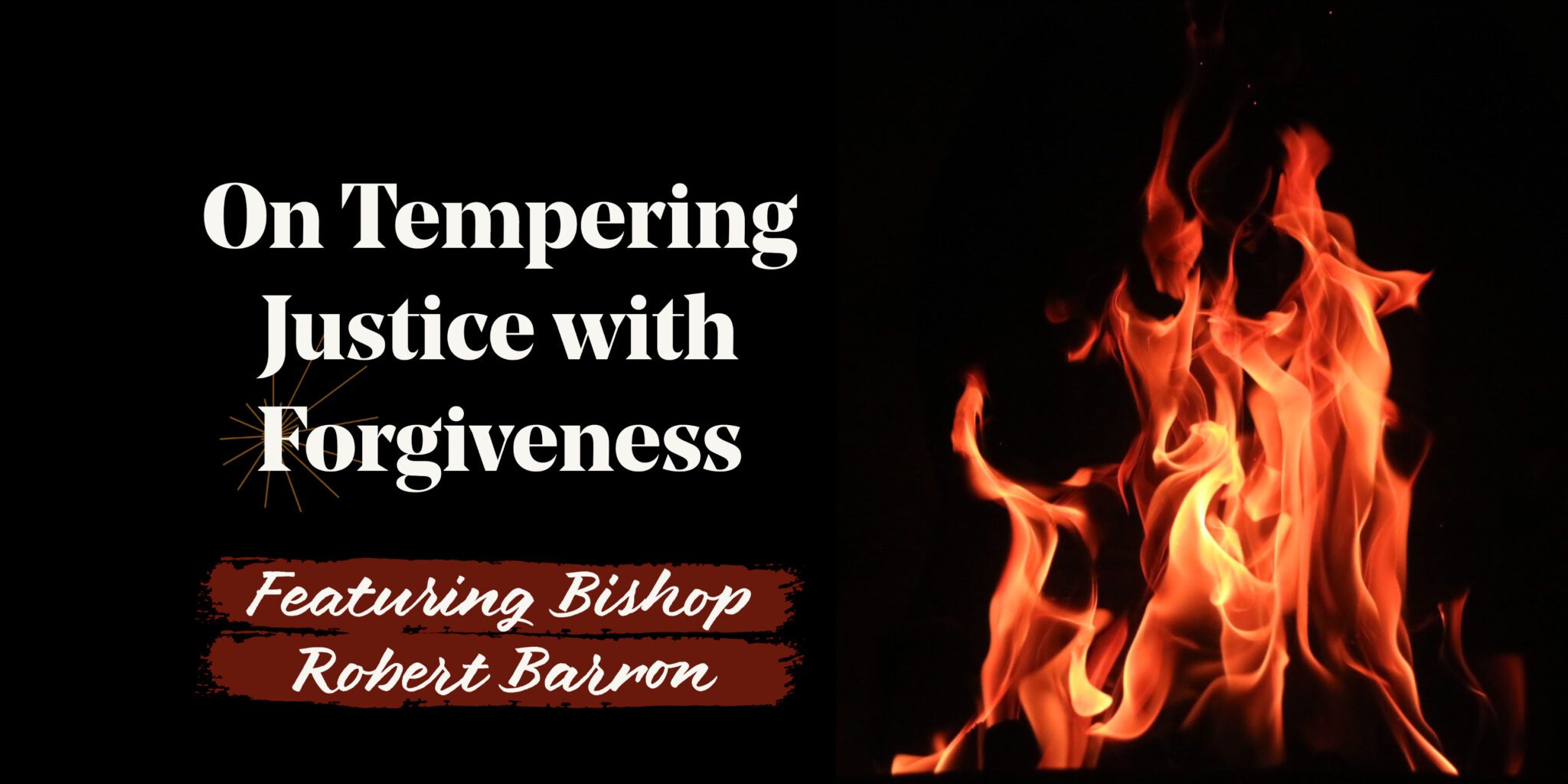As part of our recent partnership with The Well by BigThink, the John Templeton Foundation presents a new series of spotlight conversations with our remarkable grantees.
When should we seek justice, and when should we forgive?
Justice is one of the four cardinal virtues that define a good life, along with prudence, fortitude, and temperance. But according to Bishop Robert Barron of the Archdiocese of Los Angeles, if justice is not balanced by mercy or forgiveness, it can often lead to violent retribution.
Bishop Barron explains how Jesus’s great public teaching about turning the other cheek highlights this idea:
“I think Jesus’ greatest public teaching is the teaching about turning the other cheek, and the love of enemies. But I also think it’s a very misunderstood teaching. ‘If someone strikes you on the right cheek, turn and give them the other.’ ‘Resist, not evil.’ ‘Do not answer violence with violence.’ That can sound like simple passivity in the presence of evil or in the presence of injustice- just let it go, just let it be.
That’s not what Jesus is teaching. Notice, please, he doesn’t say, ‘Oh, run away, give in.’ Nor does he say, ‘Well, haul off and punch him back.’ No, turn the other cheek. In other words, stand your ground and signal back to him that you refuse to cooperate with the world he’s living in. By turning the other cheek, you’re saying, ‘I’m not gonna let you strike me that way again.’ So, it’s meant to be a bold and courageous standing of one’s ground.”
Watch the latest video series from The Well by BigThink featuring Bishop Robert Barron to learn more about justice, forgiveness, and the evidence for God.
Still Curious?
You can view these conversations and related content on The Well.
Learn more about the project Fiat Lux: The Word On Fire Institute On Science And Religion funded by the John Templeton Foundation and led by Bishop Robert Barron.
